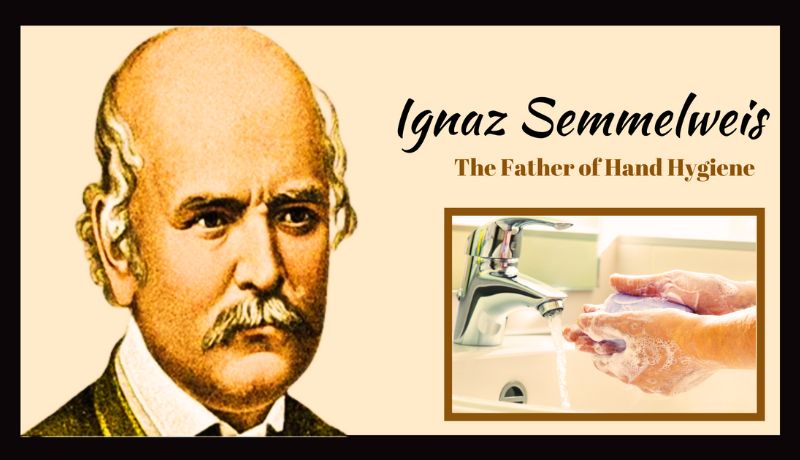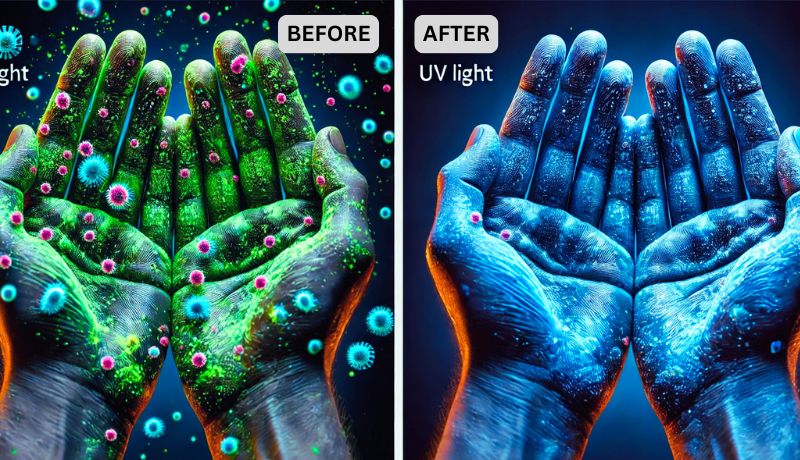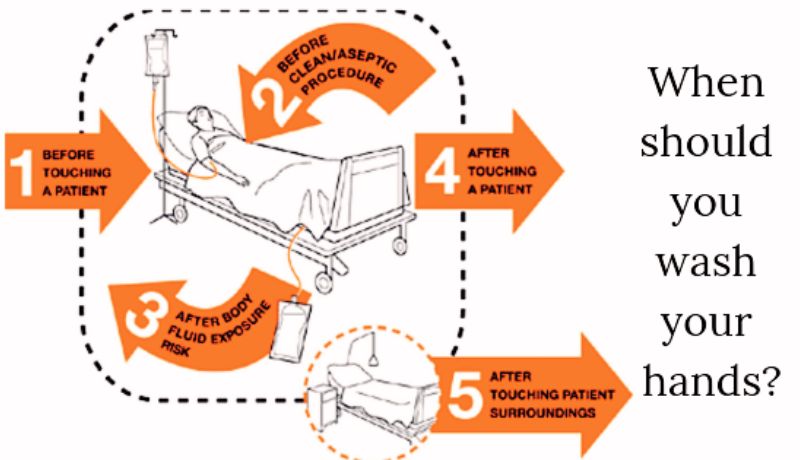
If you think hand washing is only for kids and health workers, think again.
According to health experts, hand washing is the most effective way to prevent the spread of diseases and infections.
Several infectious diseases such as pinworms, common colds, hepatitis A, meningitis, salmonella, and influenza can be prevented from spreading simply by washing your hands.
It’s a simple yet powerful habit that can save lives.
How It All Started
The importance of hand washing cannot be overemphasized.
History demonstrates how this simple act revolutionized public health; thanks to an Austrian-Hungarian physician named Ignaz Semmelweis.

Dr. Semmelweis noticed that medical students working on cadavers in the anatomy lab would go directly to examine maternity patients without washing their hands.
This led to alarming rates of maternal deaths due to infection. By insisting that the students wash their hands with chlorinated lime water, maternal mortality rates in his hospital dropped fivefold.
Despite his groundbreaking findings, it took over 50 years before hand washing became a standard practice in the medical profession.
Why Should You Wash Your Hands?
Here are several compelling reasons why hand washing should be a priority for everyone:
1️⃣ Germs Make People Sick
Germs, including bacteria, viruses, and parasites, enter the body through various routes. Once inside, they bypass the immune system and produce toxins that cause illness.
Food-borne diseases and infections like salmonella and E. coli are often transmitted through unwashed hands.
2️⃣ Germs Are Invisible but Ubiquitous
Germs are microscopic, so you can’t see them—but they’re everywhere.
Everyday objects such as cell phones, keyboards, door handles, and even toothbrushes harbor germs, which transfer to your hands upon contact.
Did you know that your office desk contains more germs than the toilet?

3️⃣ Washing Prevents the Spread of Germs
Regular and thorough hand washing removes germs, reducing the risk of spreading illnesses to others.
It’s especially important for children, who frequently touch their eyes, nose, and mouth, allowing germs to enter their bodies.
4️⃣ It Keeps You Healthy
Proper hand washing reduces the risk of respiratory and gastrointestinal illnesses, keeping you and those around you healthy.
It also ensures a cleaner environment, preventing germs from spreading.
5️⃣ It Saves on Medical Costs
Staying healthy reduces the likelihood of costly hospital visits or treatments. Hand washing is a cost-effective way to protect your health.
6️⃣ Prevents Antimicrobial Resistance
By reducing infections through proper hand hygiene, you can minimize the need for antibiotics.
This helps combat the growing threat of antimicrobial resistance, which occurs when bacteria adapt and become immune to treatments.
7️⃣ Protects Vulnerable Populations
Washing your hands helps safeguard those with weaker immune systems, such as infants, the elderly, and individuals with chronic illnesses.
By practicing good hygiene, you reduce the chances of exposing them to harmful germs.
Hand Washing and Public Health
Hand washing is more than a personal habit, a cornerstone of public health. It has been instrumental in controlling outbreaks of infectious diseases and improving overall community health.
For example:
✔ Cholera Epidemics: Improved hand hygiene and sanitation practices were key in curbing historical cholera outbreaks.
✔ Flu Seasons: Regular hand washing reduces the spread of influenza during peak seasons.
✔ COVID-19 Pandemic: Hand washing became a critical measure to prevent the transmission of the coronavirus, with global campaigns emphasizing its importance.
Fun Facts About Hand Washing
💡 The average person touches their face 16 to 23 times per hour, increasing the risk of transferring germs from hands to mucous membranes.
💡 A single gram of human feces can contain one trillion germs!
💡 Hand washing with soap can reduce diarrhea cases by about 30% and respiratory infections by about 20%.
💡 Global Handwashing Day is celebrated every year on October 15th to promote awareness about the importance of hand hygiene.
A Quick Primer on Hand Hygiene
Effective hand hygiene involves:
🅰 Knowing When to Wash
Before, during, and after food preparation; after using the restroom; after sneezing or coughing; and after touching pets, garbage, or public surfaces.
🅱 Proper Technique
Washing with soap and water for 20-30 seconds, ensuring all parts of the hands (palms, backs, between fingers, and under nails) are scrubbed thoroughly.
Dry your hands with a clean towel or air dry them.
The video below illustrates the proper handwashing procedure.
Video Credits: World Health Organization (WHO)
When to Wash Your Hands
Here’s a list of critical moments for hand washing:
- Before, during, and after preparing food
- After handling raw meat, poultry, or seafood
- Before eating or drinking
- After using the restroom
- After coughing, sneezing, or blowing your nose
- After touching pets or cleaning up after them
- After handling garbage
- Upon returning home from work or errands
- Before and after caring for someone who is sick
For healthcare workers, the World Health Organization (WHO) recommends the “Five Moments for Hand Hygiene”:
- Before touching a patient
- Before clean or aseptic procedures
- After exposure to bodily fluids
- After touching a patient
- After touching a patient’s surroundings

Hand Sanitizers: A Convenient Alternative
While soap and water are the gold standards for hand hygiene, alcohol-based sanitizers (with 60-95% alcohol) are an effective alternative when hand washing is impractical.
Hand sanitizers are portable, quick to use, and can kill most germs in 15 seconds. However, they are less effective against certain types of germs, such as norovirus and Clostridium difficile.
Conclusion
Hand washing is a simple yet crucial habit that plays a significant role in maintaining health and preventing disease.
By practicing proper hand-washing techniques, you protect not only yourself but also those around you.
Let’s make hand hygiene a priority in our daily lives to minimize the spread of infections and promote a healthier community.
Stay vigilant, stay clean, and remember that health is wealth!

Very nice post!
Considering what is going on now, handwashing is important more than ever before.
Thank you for the informative post.
Hey James,
Indeed! I hope hand washing becomes a part of our daily lives; a habit that sticks even when a Covid vaccine would already be available.
Thank you for dropping by.
It’s quite easy to forget to wash your hands. When I was a little kid, I barely used to wash hands. I stayed outside all day and my hands were very dirty all the time. After some time I got some sort of sickness related to not washing my hands, I couldn’t remember what was it though.
Since then, I’ve learnt my lesson and I always wash my hands quite a lot every day! It really is important.
Hi Donny,
Kids normally don’t want to wash their hands that’s why parents and teachers had to come up with ways to make hand washing fun in order to encourage kids to wash their hands after using the rest rooms, before eating and after playing.
As they say, prevention is always better than cure. I’m glad you learned the importance of regularly washing your hands.
When I was in culinary school my chef instructor had us wash our hands after showing us the proper way to wash them. We all thought we did spectacular jobs… until she pulled out the blue light! That was an eye opener for me. lol. I also make it a point to wash my hands after going to the gym. So many people use the machines and although the staff does what they can as far as cleaning the equipment, not everything gets wiped down consistently. I’ve actually caught most of my colds after going to the gym! Thanks for the tutorial!
Hi Jennifer,
Hand washing is an important practice not only among healthcare workers but also among chefs because they will be handling the foods that are served to the customers. Hand sanitation is very important when preparing foods, otherwise, people might contract some bacteria that could cause food poisoning. Food handlers do not only compromise their health by not practicing proper hand washing but also the health of every single one who consumes the foods they prepare.
We would want to wash our hands after using public facilities because we never know what other people might have touched before touching those equipments. I also always wash my hands after handling money, paper bills or coins, because I believe that money is one of the dirtiest and most contaminated things because they have been passed on from several people. I know that in the States, people seldom use cash but where I am right now, most people still use real money for almost every transaction.
Alice,
Some people do not realize the importance of washing their hands, or when to wash them. I think your article will help some that do not think that you should wash frequently during the day, even though your hands do not look dirty. I do wash several times a day with the alcohol based liquids, I do like to wash with a mild soap so that my hands do not dry out.
I have a 12 year old that thinks that washing his hands is against all the rules. I have a hard time getting him to wash after using the restroom, do you have any ideas that will help in educating him on how washing his hands.
Thanks for the information in this article.
John
Hey John,
You’re right, some people do not realize how important hand washing is, because most of the time they don’t visibly see how dirty their hands really are. Hand washing is a habit that needs to be developed as early as childhood because habits are more or less carried into adulthood. Alcohol based liquids are great alternatives to soap and water but should not be an excuse to wash with soap and water especially when our hands are visibly soiled.
With regards to your 12 year old who refuses to wash his hands after using the rest room, you can tell him to wash his hands, otherwise he cannot touch anything else in the house especially the kitchen. Parents with younger kids convince them to wash their hands by making hand washing fun. I don’t know if this will work with your sons. But I hope this helps.
Admittedly, hand washing is something most of us neglect. We have been taught since childhood the importance of hand hygiene but as we grew older, we tend to “not” forget but rather neglect it, primarily because we are now living in a fast-paced world wherein everybody seems to be always in a hurry. We find it difficult anymore to give time to the more important things such as our health.
I myself am guilty of not washing my hands properly especially before eating as I often eat when driving to work or even while working on my website. So thank you so much for the great reminder. Practicing proper hand washing techniques is really crucial to our over all health.
Hello Fred,
I used to neglect the practice of proper hand washing too. I never bothered to wash my hands before eating or drinking anything, or if I did, it was some kind of a “quick” wash. The importance of hand washing really just sank in when I started working in a medical facility where I am exposed to possible infections and cross-contamination.
Here, I got into the habit of regularly washing my hands because I handle blood and other body fluids as part of the job assignment. It’s important to properly wash our hands no matter how very busy we are. Being super busy is never an excuse to neglect the habit of proper hand hygiene because we are putting not only our health in jeopardy but also of those people around us.
And did you know that there are more germs in our work desk than there are in the toilet? How scary is that!
Good advice, I know I am always hounding my kids to wash their hands more often. As a health care employee, I am using hand sanitizer before and after each patient, but I always feel better if I wash my hands with soap and hot water before meals. I agree that most of us are not washing our hands long enough either. Thanks for the reminder!
Hi Will,
It’s really important to teach our kids while they’re young the importance of frequently washing their hands. If parents succeed in developing in their kids the habit of hand washing at home, they will feel secure that their kids will maintain this practice at school even when they can’t be there to remind them about it.
Hand sanitizers work fine in cases where you do not have access to running water and soap but washing your hands with the latter is the recommended practice. Not to mention that there are hand sanitizers and alco-gels that leave your hands sticky.
Proper hand washing does not only mean wetting your hands with water or making some small lathers and rinsing as quickly as possible. We need to apply the proper hand washing techniques to ensure that our hands are completely free from any germs that can make us sick.